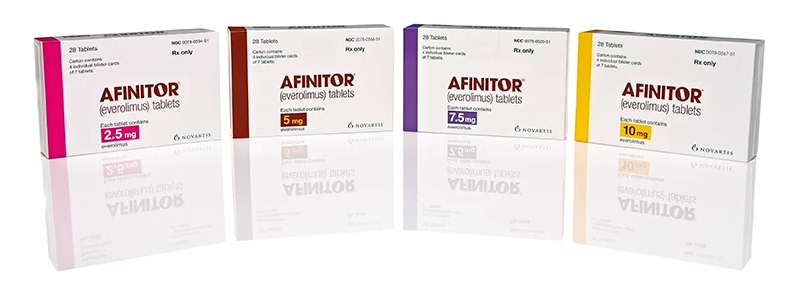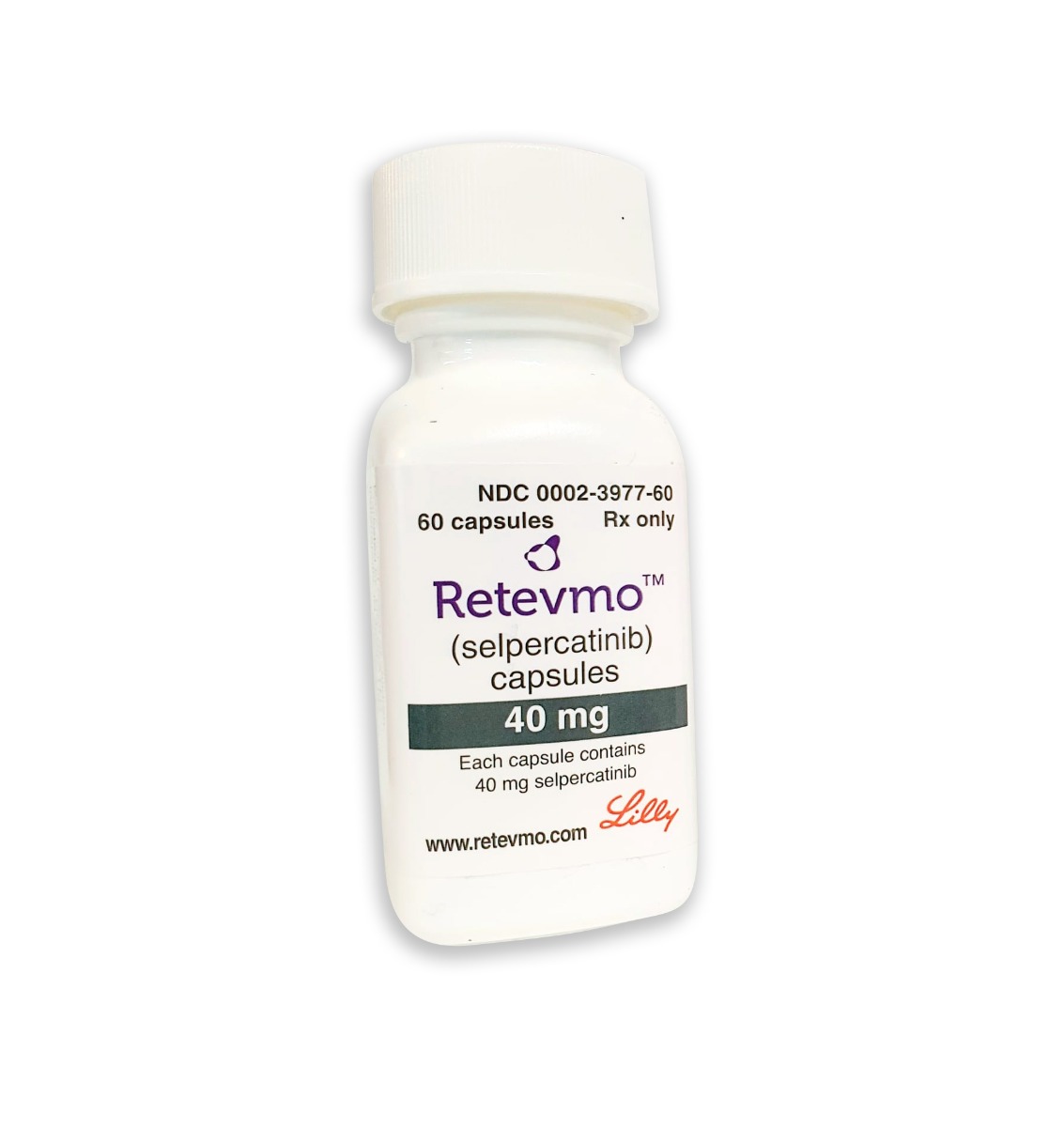Afinitor (everolimus) vs Retsevmo (selpercatinib)
Afinitor (everolimus) vs Retsevmo (selpercatinib)
Afinitor (everolimus) is an mTOR inhibitor used to treat various types of cancer, such as advanced renal cell carcinoma, certain breast cancers, and neuroendocrine tumors, as well as tuberous sclerosis complex. Retsevmo (selpercatinib), on the other hand, is a selective RET kinase inhibitor indicated for the treatment of lung and thyroid cancers with RET gene alterations. When deciding between these medications, it is crucial to consider the specific type of cancer and its genetic profile, as the effectiveness of Afinitor and Retsevmo is highly dependent on the presence of certain molecular targets in the cancer cells.
Difference between Afinitor and Retsevmo
| Metric | Afinitor (everolimus) | Retsevmo (selpercatinib) |
|---|---|---|
| Generic name | Everolimus | Selpercatinib |
| Indications | Advanced hormone receptor-positive, HER2-negative breast cancer, advanced neuroendocrine tumors, renal cell carcinoma, subependymal giant cell astrocytoma, tuberous sclerosis complex | RET-altered thyroid cancers, RET fusion-positive non-small cell lung cancer |
| Mechanism of action | mTOR inhibitor | RET kinase inhibitor |
| Brand names | Afinitor, Zortress | Retsevmo |
| Administrative route | Oral | Oral |
| Side effects | Mouth ulcers, infections, rash, fatigue, diarrhea, edema, abdominal pain, nausea, fever, pneumonitis | Dry mouth, diarrhea, hypertension, fatigue, edema, rash, constipation, abdominal pain |
| Contraindications | Hypersensitivity to everolimus or other rapamycin derivatives | Hypersensitivity to selpercatinib |
| Drug class | Immunosuppressant, Antineoplastic agent | Kinase inhibitor |
| Manufacturer | Novartis | Eli Lilly and Company |
Efficacy
Efficacy of Afinitor (Everolimus) in Lung Cancer
Afinitor (everolimus) is a medication primarily known for its use in certain types of advanced hormone receptor-positive breast cancer, pancreatic neuroendocrine tumors, and renal cell carcinoma. Its efficacy in lung cancer, specifically non-small cell lung cancer (NSCLC), has been explored due to its mechanism of action as an mTOR inhibitor, which is involved in cell growth, proliferation, and angiogenesis. Clinical trials have assessed everolimus in various settings of lung cancer treatment, often in combination with other therapies. However, it is not primarily indicated for lung cancer and is not a standard treatment option for this disease. The efficacy of everolimus in lung cancer patients may vary and is generally considered in the context of clinical trials or off-label use.
Efficacy of Retsevmo (Selpercatinib) in Lung Cancer
Retsevmo (selpercatinib) is a more recent addition to the lung cancer treatment landscape. It is specifically indicated for the treatment of non-small cell lung cancer (NSCLC) with RET (rearranged during transfection) gene alterations. Selpercatinib is a selective RET kinase inhibitor that has shown significant efficacy in patients with RET fusion-positive NSCLC. Clinical trials have demonstrated that selpercatinib can lead to high response rates and durable responses in this subset of lung cancer patients. It has been granted accelerated approval by the FDA for its use in RET fusion-positive NSCLC based on the outcomes of these trials.
The efficacy of selpercatinib in RET-altered lung cancer represents a shift towards personalized medicine, where treatments are tailored based on specific genetic alterations in a patient's tumor. The targeted nature of selpercatinib allows for the direct inhibition of the oncogenic driver in RET fusion-positive lung cancer, which may result in better outcomes and fewer side effects compared to traditional chemotherapy. Ongoing studies continue to evaluate the long-term benefits and optimal use of selpercatinib in the treatment of lung cancer with RET alterations.
In summary, while Afinitor (everolimus) has been studied in lung cancer, it is not a standard treatment for this indication and is typically considered in a research setting or for off-label use. On the other hand, Retsevmo (selpercatinib) has shown promising efficacy in treating RET fusion-positive non-small cell lung cancer and has been approved for this specific indication, marking an important advancement in the targeted therapy approach for lung cancer treatment.
Regulatory Agency Approvals
Afinitor
-
European Medical Agency (EMA), European Union

-
Food and Drug Administration (FDA), USA

-
Health Canada

-
Pharmaceuticals and Medical Devices Agency (PMDA), Japan

-
Therapeutic Goods Administration (TGA), Australia

Retsevmo
-
European Medical Agency (EMA), European Union

-
Food and Drug Administration (FDA), USA

Access Afinitor or Retsevmo today
If Afinitor or Retsevmo are not approved or available in your country (e.g. due to supply issues), you can access them via Everyone.org.
How it works

Make an enquiry
Choose the medicine you want to buy, answer a couple of questions, and upload your prescription to speed things up. We’ll get back to you within 24 hours.


Make an enquiry
Choose the medicine you want to buy, answer a couple of questions, and upload your prescription to speed things up. We’ll get back to you within 24 hours.


Breeze through the paperwork
We'll guide you through the required documents for importing unapproved medicine, ensuring you have all the necessary information.


Get a personalized quote
We’ll prepare a quote for you, including medicine costs and any shipping, administrative, or import fees that may apply.


Receive your medicine
Accept the quote and we’ll handle the rest - sourcing and safely delivering your medicine.

Some text on this page has been automatically generated. Speak to your physician before you start a new treatment or medication.
Let's talk
If you have any questions, call us or send us a message through WhatsApp or email:
Contact us




